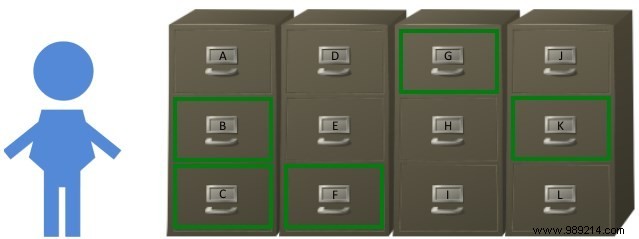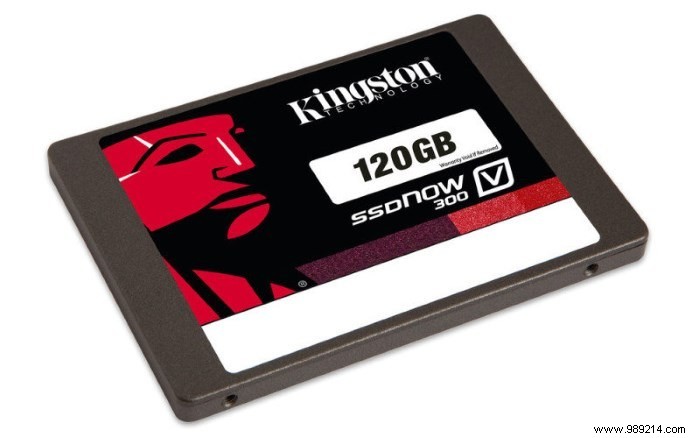One of the age-old solutions to fix a slow computer is to defragment its hard drive. It's quite simple to do:just run the defragmenter and wait for it to finish its job. Have you ever wondered, however, what exactly defragmentation means? This may sound like a complex procedure by its name, but it's actually quite simple. Let's see how disks store data and how it gets fragmented in the first place.
ContentsHow hard drives store dataThe problemWhat is defragmentation forWhat about SSDs?Conclusion

It doesn't take a rocket scientist to realize that the man should take some time at the end of the week to sort the reports into consecutive order. By shuffling pages in and out of the main filing system, he can arrange the cabinets so that each report has its pages all together in the correct order. So when you ask for a report, he doesn't have to open several scattered drawers to get it, and it saves him time.
Of course, there's no little guy on your hard drive recovering your data. The "man" in this example is the hard disk drive head. If you save a large amount of data (like installing 1GB software), the hard drive will fragment it among the gaps it finds in the hard drive. When you go to load the software, the head of the hard drive takes a long time to move around the sparse parts of the platter to read all the data. By using a defragmenter, the hard drive shuffles and sorts data around the platter so that all data on the computer is in consecutive order. This means that the head doesn't have to move as much to read your data, and the loading process is faster.

Savvy readers may find that this is not the case for SSDs. SSDs do not use spinning disk platters; they use flash memory like a USB stick would. Since there is no disk, there is surely no reason to defragment it. Right?
This was a hot topic a few years ago when SSDs were hitting the market. The consensus was that SSDs didn't have a spinning platter, so they didn't need to be defragmented. Not only that, but performing a defrag on the SSD would wear it out unnecessarily, shortening its lifespan. Sure enough, Jon L. Jacobi of PC World ran defragmenters on his SSDs and noted that they didn't do anything noteworthy.
However, you shouldn't be totally against disk defragmentation. Windows does its own SSD defragmentation once a month, but it's not the same kind it does on a hard drive. Windows knows very well that your disk is an SSD, so it will perform special actions on it to make sure it stays healthy and works for as long as possible. You can read Microsoft's claim on their SSD defragmentation here. In short, don't use third-party defragmenters on SSDs, but allow Windows to perform maintenance on them.
Defragmenting a disk is a well-known way to make a computer run faster. However, it's not explicit as to what it actually does. I hope you now understand what defragmentation is, why it is done and its position with SSDs.
Have you ever seen a huge performance boost after a defragmentation? Share your stories below.